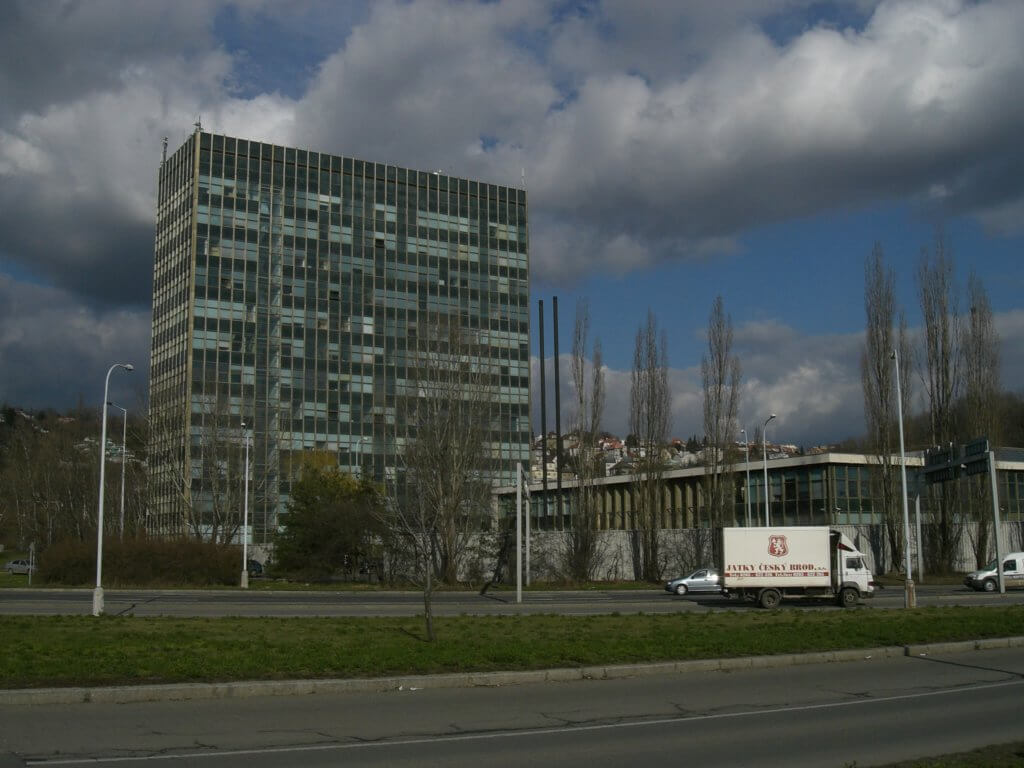Goodbye, Sinatra of the East
Firstly, to get it out of the way and since there is no avoiding talking about it: the schlager singer and Czechia’s number one superstar emeritus Karel Gott has died, much to the grief of his mostly retired fanbase. Gott’s Germany-style repertoire has been a strong symbol of the proud Czech culture for the last fifty years and nary a Czech was ever allowed to forget it: his songs had a ubiquitous presence wherever there was the slightest chance to run into some form of music. There is no escape.
In the two weeks since his passing, Czech media has examined Gott from various angles: musical (generally positive although, curiously enough, no one seems to have mentioned how incredibly annoying his songs got when inevitably heard for the hundredth time), political (mostly focusing on Gott’s splendid job of supporting whoever and whatever was currently in power), personal (“So humble. So professional.”), and even prophetic (“He was right about secret societies controlling everything!” — unfortunately, a much needed thorough analysis of Gott’s conspiracy crackpottery is, alas, still missing from the Czech media, presumably due to the risk of a potential uprising by old ladies slighted by this blow to the Maestro’s honor). But few words have been actually written about Gott as a symbol. The man represented the very best of Czech values: ignorance-based nostalgia, the denial of facts, a willingness to believe in the most idiotic explanations and a complete lack of spine. Is it any wonder we love him so?
Gott’s funeral was a show perfectly reflecting his career. The initial suggestion of a state funeral and a country-wide day of mourning, proposed by the opportunistic PM Andrej Babiš and agreed on by the parliament in less than two hours after the news broke before even consulting the deceased’s family, ended up being changed to “just” a funeral with state honors (a quiet, low-key affair – just the priest, the crowd, some flags and the Czech army). Some fifty thousand people showed up to pay their respects to the departed, mostly by taking selfies with the coffin. If it is any consolation, based on Gott’s career, that is precisely what he would have wanted.
The Loan Shark University of Prague
In actually relevant news, the biggest and oldest university in the country, the Prague-based Charles University took quite a hit to their reputation when they announced a contract between them the loan company Home Credit that would give Home Credit the status of a “primary sponsor. ” At first glance this sounds harmless enough, but the contract also includes assurances that the University will do nothing that could possibly harm the reputation of Home Credit – which, as their own Faculty of Arts was quick to point out, does a lot for the reputation of the famously exploitative company but very little for the university itself, not to mention the negative impact such a promise would have on academic freedom.

That being said, there is an even darker side to the whole issue. Based on the information issued by the parent company of Home Credit PPF Group, the contract with the university would also include “help [from Home Credit] with research and scientific projects and inviting guest lecturers from abroad”, which, again, does not sound that bad on paper, except…
PPF is owned by Petr Kellner, Czechia’s richest citizen and an extremely shadowy and malevolent figure with a lot of business in Russia and China (where Home Credit actually has a pretty bad reputation if the nickname “King of Loan Sharks” is anything to go by).
With plenty of connections in the Czech political class to further his business interests, Kellner has seen his goals supported by not only notorious shills like our beloved President — may he be mauled by an especially energetic panda — but also conservative think tanks and the freshly established conservative-nationalist Trikolóra party (tricolor) which sells itself as an analogue to the alt-right SPD but intended for voters whose IQ is in the (low) triple digits.
Kellner already has his fingers in way too many pies and assuming this deal would grant him even a slight degree of control over a university, he would be able to exert influence over the country’s foreign policy even further, be it by providing carefully dictated analyses or by simply pouring even more propaganda down students’ throats.
Another, rather underwhelming, possible explanation for the contract would be an attempt to silence Sinopsis — a website dedicated to translating and publishing news and opinions concerning Chinese political economy which happens to be both very critical of the Chinese regime and run by the very same Faculty of Arts that — rather understandably — started protesting the whole deal.
Media and academic backlash eventually has turned out to be too high for, funnily enough, not the university that was about to get its reputation destroyed, but the notorious loan sharks at Home Credit who backed out of the deal after correctly judging that they would not get any positive PR from such an arrangement.
Should’ve sent the soldiers
What China will think — or what the diplomatic repercussions will be — of the deal falling through is anyone’s guess. But if anything, the whole affair will be way less embarrassing than the PM’s ongoing attempts to waltz through the Turkish invasion of Syria without taking a hit to his support.
Three weeks ago, Babiš happened to be on a state visit to Turkey where he expressed support on behalf of all the V4 countries for building a “safety zone” in northern Syria. After the war started, he tried to backpedal by blurting out he never knew that included an invasion (because building a “safety zone” on another country’s soil obviously never would) and the government took a firm step in immediately stopping any military exports to Turkey. That will show them.

Babiš went further though: he took the opportunity of a routine speech during a military anniversary to accuse the Czech army of inaction. “Why did we not send any soldiers there?” he declared, brimming with righteous fury. “If you were there, you could have saved people from dying!”
A grievous accusation indeed and one that deserves further explanation. Sadly, under current Czech law, sending Czech military units on a mission abroad needs to be made through the proper channels, by the government, as headed by the PM. Undoubtedly, Andrej Babiš accusing Andrej Babiš of not doingAndrej Babiš’s job has got to be a historical first.
**
![Political Critique [DISCONTINUED]](http://politicalcritique.org/wp-content/uploads/2015/09/Political-Critique-LOGO.png)
![Political Critique [DISCONTINUED]](http://politicalcritique.org/wp-content/uploads/2015/09/Political-Critique-LOGO-2.png)